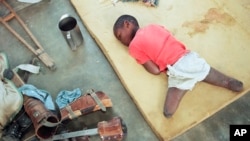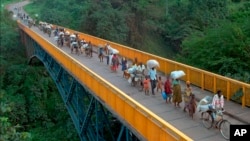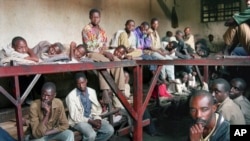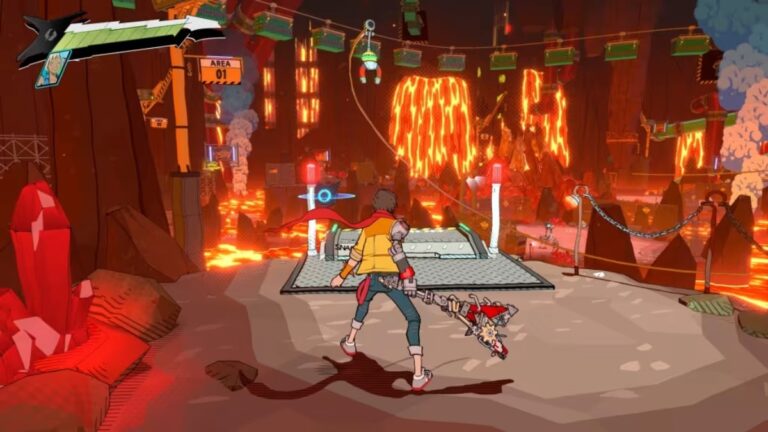
Scars of 1994 genocide still haunt Rwanda
By Surja | Published | No Comments
Rwanda is preparing to mark the 30th anniversary of the most horrific period in the East African country’s history – the genocide against the Tutsi minority. To this day, new mass graves continue to be discovered across the country of 14 million people, a brutal reminder of the scale of the killing.
Delegations from around the world will gather in the capital Kigali on Sunday as Rwanda holds poignant commemorations of the 1994 genocide. High-profile visitors are expected to include US President Bill Clinton at the time of the genocide and Israeli President Isaac Herzog.
French President Emmanuel Macron said in a pre-recorded video Thursday before the ceremony that France and its allies could have stopped the genocide but lacked the will to do so. Macron’s statement comes three years after he admitted that France – Rwanda’s closest European ally in 1994 – bore “huge responsibility” for failing to prevent the country from descending into massacre.
Let’s take a look back at the past and how Rwanda has changed under President Paul Kagame. President Kagame has been praised by many for the relative peace and stability he has brought, but also vilified by others for his intolerance of dissent.
What happened in 1994?
It is estimated that 800,000 Tutsis were killed in the massacre by Hutu extremists that lasted for more than 100 days. Some moderate Hutus who sought to protect members of the Tutsi minority were also targeted.
On April 6, 1994, a plane carrying then-president Juvénal Habyarimana, a Hutu, was shot down over Kigali, triggering the massacre. Tutsis were blamed for shooting down the plane and killing the president. Enraged gangs of Hutu extremists, backed by the army and police, began killing Tutsis.
Many victims – including children – were hacked to death with machetes. Kagame’s rebel group, the Tutsi-led Rwanda Patriotic Front, managed to stop the killings, seize power and have ruled Rwanda as a political party ever since.
Kagame’s government and genocide survivor groups have frequently accused France of training and arming the militias and troops who led the violence, and have sometimes expressed a desire for a formal apology.
A report commissioned by Macron in 2019 and released in 2021 concluded that French authorities failed to see where the French-backed Habyarimana regime was headed and were therefore too slow to acknowledge the scale of the killings . However, the report clarified that France had no complicity in the massacre.
What happened after the genocide?
After Kagame seized power, many Hutu officials either went into exile or were imprisoned on suspicion of complicity in the genocide. Some fled to neighboring Congo, where their presence sparked armed conflict. In the late 1990s, Rwanda twice sent troops deep into Congo, in part to hunt down Hutu rebels.
Some rights groups have accused Rwanda’s new authorities of carrying out revenge attacks, but the government has slammed the accusations, saying they disrespect the memory of the genocide victims.
Kagame, a refugee who grew up in neighboring Uganda, has been Rwanda’s de facto ruler, first as vice president and then as acting president from 1994 to 2000. He was elected in 2003 and has been re-elected several times since.
What is the political landscape like?
Rwanda’s ruling party is firmly in power with no opposition, and Kagame’s fiercest critics are now in exile. Kagame won the last presidential election in 2017 with nearly 99% of the vote, and Amnesty International said his campaign was marked by repression and a “climate of fear”.
Critics accuse the government of forcing opponents to flee, imprison or disappear, while some have been killed under mysterious circumstances. Human rights groups point to severe restrictions on the Internet and on freedom of assembly and expression.
Some claim Kagame exploits Western guilt over the genocide to consolidate his control over Rwanda.
Kagame, now a candidate in the upcoming July presidential election, has positioned himself as the leader of a growing economy marked by technological innovation, and his supporters often tout Rwanda as Africa’s emerging business hub. .
What about reconciliation?
Rwandan authorities have vigorously promoted ethnic unity between the Hutu majority and the Tutsi and Twa minorities, creating a separate government department dedicated to reconciliation efforts.
The government has implemented harsh criminal laws to punish the genocide and outlaw the ideology behind it, and Rwandan identity cards no longer identify a person by ethnicity. Lessons on genocide are part of the school curriculum.
However, a leading survivor group says more action is needed to root out what authorities call “genocidal ideology” among some Rwandans.
What does Rwanda look like today?
Kigali’s streets are clean and pothole-free. Littering is prohibited. Tech entrepreneurs flock here from all over. Stylish new buildings give the city a modern look, and the innovation center aims to cultivate local talent in the field of digital culture.
But poverty is rampant outside Kigali, and most people still rely on subsistence farming to survive. The tin-roofed shacks that populated the countryside in 1994 are now a common sight in Rwanda.
However, the country is still young, with all other citizens under 30, raising hopes for a post-genocide society where race or tribal membership does not matter.
Official corruption is not as prevalent as in other governments in this part of Africa, thanks in part to a zero-tolerance policy against corruption.
Is there trouble on the horizon?
Although Rwanda is largely peaceful, its relations with its neighbors are problematic. Tensions have increased in Congo recently, with leaders from both countries accusing each other of supporting various armed groups.
Congo claims Rwanda supports the M23 rebels, mainly Tutsi fighters based in remote areas of eastern Congo. The M23 insurgency has displaced hundreds of thousands of people in Congo’s North Kivu province in recent years. Rwanda says the Congolese army is recruiting Hutu men who took part in a 1994 genocide.
United Nations experts cited “conclusive evidence” that members of the Rwandan armed forces were operating in eastern Congo in support of the March 23 movement; in February, amid a large military buildup along the border, Washington urged the Rwandan authorities to withdraw troops and missile systems From the Congo.
In January, Burundian troops were fighting alongside Congolese troops in eastern Congo, which closed its border with Rwanda and began deporting Rwandans. This happened shortly after Burundian President Evariste Ndayishimiye accused Rwanda of supporting Congolese rebels who oppose his government. Rwanda denies the accusation.
Rwanda has also been in the news recently for a deal with Britain that would see migrants crossing the English Channel in small boats sent to Rwanda to stay there permanently. The plan has been stalled by legal challenges. In November, the UK’s Supreme Court ruled the scheme was illegal, saying Rwanda was not a safe destination for asylum seekers.
Follow us on Google news ,Twitter , and Join Whatsapp Group of thelocalreport.in








